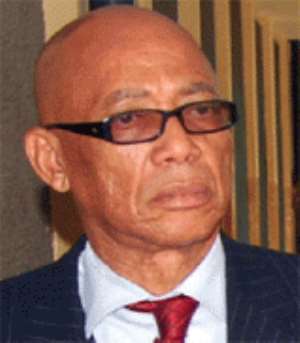
Human Rights and Administrative Justice Commissioner, Mr Emile Frances Short, has said at a pre investment workshop of the African Investment Forum in Accra that discussions on how to combat corruption have focused primarily on the recipients of bribes rather than on those who pay them.
“We are so quick to point to one public officer or the other receiving a bribe, but we are less enthusiastic to condemn the private person or business company that offers the bribe”, adding that “it is as if it is alright for the big multinational to pay its way through some tender process”.
“We are simply quick to condemn public sector corruption, but not so eager to discuss private sector corruption,” he said.
“The reality is that both the giver and the taker conspire to defraud the public, to undermine fair trade, to waste resources and hinder national development”, he stressed.
According to Mr Short, “the private sector is part of the problem and needs to be part of the solution”.
He said there were many business entities that believed the view that payment of bribes and other forms of corruption were good for international business because they constituted a way of overcoming barriers to business in some countries.
To him, the philosophy among multinational firms was that corruption was entrenched in Africa and so they have to come to terms with it if they want to do business in Africa, adding that “there are indeed many foreign investors who regard corruption as effective and necessary strategy to win business in Africa”.
Mr Short said corruption was a canker that wasted resources by distorting government policy against the interests of the people. “Corruption turns the energies and efforts of public officials and citizens towards easy money instead of productive activities”.
According to the human rights campaigner, the increasing evidence of the threat of corruption poses the greatest challenge to national development in developing countries, especially in developing countries.
He estimates that 10 per cent of the total expenditure on construction is diverted annually from infrastructure projects, adding that “it is true that corrupt administrations prefer to spend more on huge investments and infrastructure projects not, because of their benefit to the masses of the people, but because of the huge kickbacks that such projects offer.
To reduce the menace of corruption, Mr Short suggested that businesses must commit themselves to very robust ethical rules that forbid corruption in all its forms.
“An ethical revolution in the private sector is what I would advocate. Such a revolution would require the Chamber of Commerce to promote high standards of integrity in business transactions by means of self-regulation and the development of an effective code of corporate conduct and whistle-blowing procedure,” he emphasised.




 Cecilia Dapaah: Reasons behind AG’s advice to EOCO not grounded in law – Martin ...
Cecilia Dapaah: Reasons behind AG’s advice to EOCO not grounded in law – Martin ...
 NPP should have reported Kingsley Nyarko’s conduct to police – Inusah Fuseini
NPP should have reported Kingsley Nyarko’s conduct to police – Inusah Fuseini
 Akufo-Addo cuts sod for MIIF Technical Training Centre
Akufo-Addo cuts sod for MIIF Technical Training Centre
 NPP didn’t struggle to win Ejisu by-election – Samuel Ayeh-Paye
NPP didn’t struggle to win Ejisu by-election – Samuel Ayeh-Paye
 A/R: Achiase Chief arrested for acid attack on community members
A/R: Achiase Chief arrested for acid attack on community members
 Naa Ayemoede returns to school
Naa Ayemoede returns to school
 Dadieso residents block Accra-Kumasi highway
Dadieso residents block Accra-Kumasi highway
 Kasoa soldier killer remanded
Kasoa soldier killer remanded
 Rashid Pelpuo slams Opoku Prempeh for denying dumsor
Rashid Pelpuo slams Opoku Prempeh for denying dumsor
